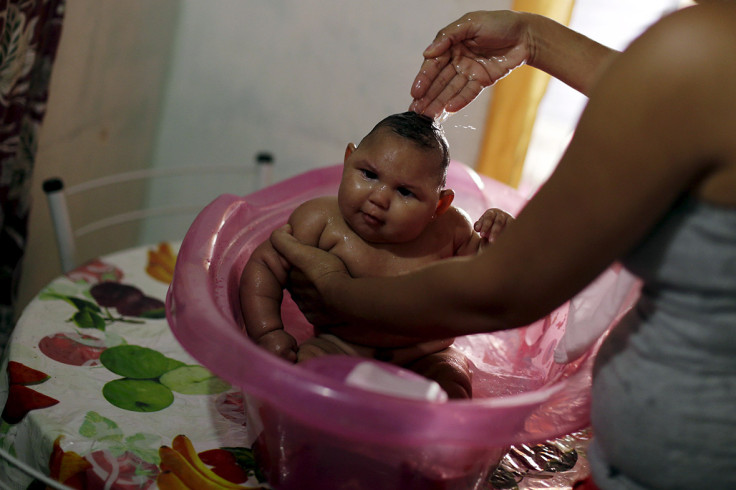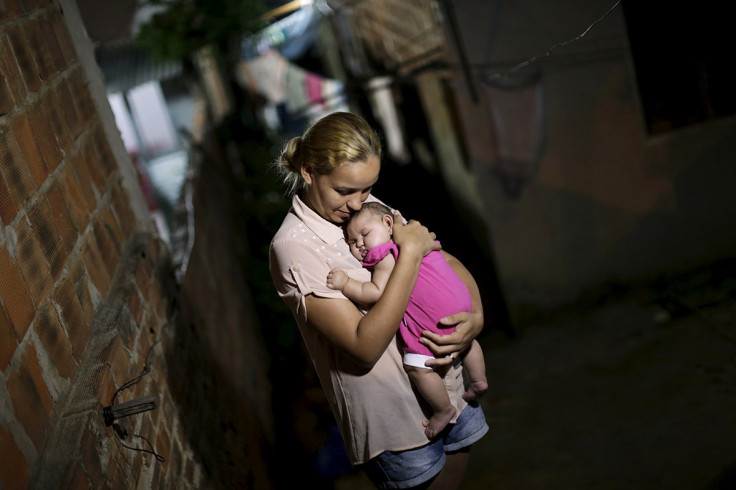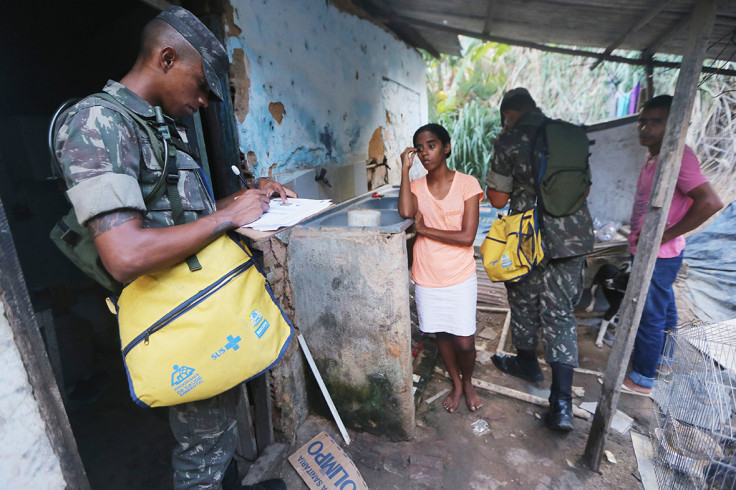How Brazilian women are avoiding pregnancy over fear of Zika
A survey has suggested women may be delaying pregnancy until after the Zika outbreak is over.
In Brazil, more than one woman out of two may be postponing pregnancy in response to the Zika outbreak, researchers have said. With 1,845 cases of congenital Zika syndrome confirmed in babies up to July 2016, the country has been deeply affected by the epidemic, and many women are worried about giving birth to children with microcephaly.
For adults, the Zika virus is rarely life-threatening. It shares many symptoms with other tropical infectious diseases like dengue fever or Chinkungunya – fever, rash, joint pain and conjunctivitis are common. However, 80% of cases remain asymptomatic and people often don't realise that they have been infected.
Yet, the virus has been confirmed to cause a range of devastating birth defects, including microcephaly, in babies whose mothers have been infected during pregnancy. Scientists believe this may have an impact on reproductive behaviours and practices.
In a small study published in the Journal of Family Planning and Reproductive Health Care, a team of doctors, led by Professor Debora Diniz from University of Brasília, has investigated whether this was really the case in Brazil.
National survey
To do so, they conducted a national survey in June 2016, among a sample of 2002 urban Brazilian women between the ages of 18–39 years. It involved the participants responding to a secret ballot box about their experiences relating to abortion and to a face-to-face questionnaire in which they discussed their reproductive behaviours.

The results of this survey indicated that 56% of the participating women had tried to avoid getting pregnant since the beginning of the epidemic because they feared the consequences of Zika. This trend was more prevalent among women in the Northeast of Brazil (66%) than in women in the South (46%), which the authors say potentially reflects the fact the epidemic has hit northern regions harder.
"Women seem to be afraid of getting pregnant, and try to avoid it as much as they can. We are concerned that this will have a very negative impact on their mental health," lead author Debora Diniz told IBTimes UK.
How women avoid pregnancy
What the study does not say however is how women actually manage to avoid pregnancy. Although contraceptives are officially available in Brazil, it is often complicated to access them, especially in northern rural regions where poverty and lack of education and healthcare structures are common. The influence of the Catholic Church remains important, so contraceptives can also be frowned upon. And unless pregnancy is the result of a rape or puts the mother's life at risk, abortion is prohibited – although many are conducted every year illegally in the country.
"It is all well to say women are avoiding pregnancy, but how do they do they actually do it? Northeastern Brazil lacks basic healthcare facilities and the great majority of women do not receive proper gynecologic follow-up. Contraceptives are not widely available and often ineffective," Aline Philibert, researcher at Paris Descartes University on the topics of Zika and sexual violence, told IBTimes UK.

Another problem is that the study sample is not entirely representative of the Brazilian population, so concluding whether all women really are changing their reproductive behaviours in the wake of the Zika outbreak is uncertain.
Philibert said : "For the sample of this study to be truly representative, it should have focused on a larger age group – women aged 16 to 45 for example. In Northeastern Brazil many girls get pregnant before the age of 18, often due to the lack of education and access to sexual health services and this is not taken into account here. The girls are not stupid, they don't want to get a baby with microcephaly but whether they really are changing their behaviours, we can't really know at this stage".
A lost generation?
Over the next few years and until the end of the epidemic, scientists will assess whether the fact women want to avoid pregnancy will concretely result in lower fertility rates or in an increase in the number of illegal abortions.
"There might be a gap in the number of babies being born over the next couple of years, until an effective vaccine is found. Couples will avoid conceiving, delaying pregnancy for a few years or at least waiting for the winter months when Zika infection rates are lower. So we might see less babies being born, but the demographic consequences of Zika are not going to be entirely dramatic over the next five years, we are not going to have a lost generation", Dr Eduardo J. Gómez, Senior Lecturer at King's College London Department of International Development, told IBTimes UK.
All the experts agree on one aspect: Even if the fertility rate is not significantly lowered, Zika should be a wake-up call that the country needs to urgently reform the health system, making reproductive health services more accessible and rethinking the abortion law. "The Brazilian government must place reproductive health concerns at the centre of its response, including reviewing its continued criminalisation of abortion," the authors of the survey write.

The authorities will also have to face the fact that Zika will be a massive strain on the public health system because treating neurological complications in babies requires resources that Brazil does not have at present.
"In some regions, especially in rural areas that have been hit hard by Zika, there are very few neurologists. This means that children with congenital Zika syndrome will either not get treated or families will have to turn to expensive treatments in private practice. There is also a concern regarding access to medication. Medicine for neurological diseases are very specialised, so shortages are also to be expected," Gomez concluded.
© Copyright IBTimes 2024. All rights reserved.






